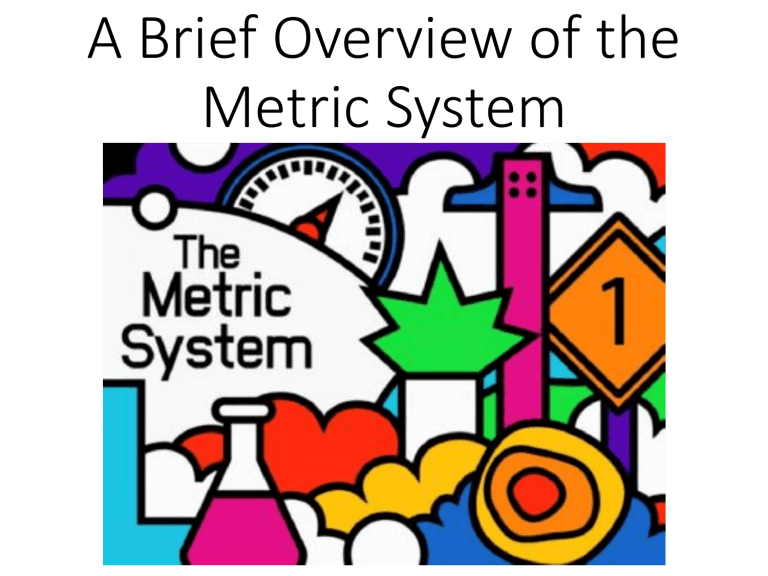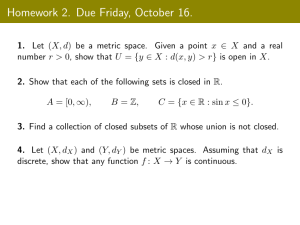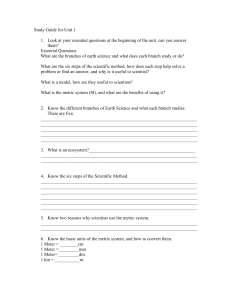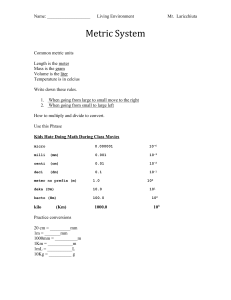
A Brief Overview of the Metric System The English or Imperial System image credit: Ian Whitelaw The early English inch was defined as the length of three barleycorns laid end-to-end photo credit: Andrew Robinson King George the III of England’s standard weights from 1773. The Metric System Commemorative stamp showing the French Republic measuring one quarter of the earth’s circumference – the original idea behind the meter Since 1983, the meter has been defined as the distance that light travels in 1 299,792,458th of a second More about the metric system 1 cm 1 cm 1 cm photo credit: Harry Turner, National Reseach Council of Canada A cube of water with sides each 1 cm has a mass of 1 gram The Canadian Standard Kilogram. The kilogram is the only unit in the metric system defined by an actual object. The nickel has a mass of 5 grams Units of Measurement Seven Base Units of the SI System: 1. Length = Meter (m) 2. Mass = Kilogram (kg) ; Metric = Gram (g) 3. Time = Second (s) 4. Electric Current = Ampere (A) 5. Temperature = Kelvin (K) ; Metric = Celsius (°C) 6. Luminous Intensity = Candela (cd) 7. Amount of Substance = Mole (mol) • The degree Celsius is the common unit for the measurement of temperature. • Technical calculations involving temperature must, however, use kelvin.


